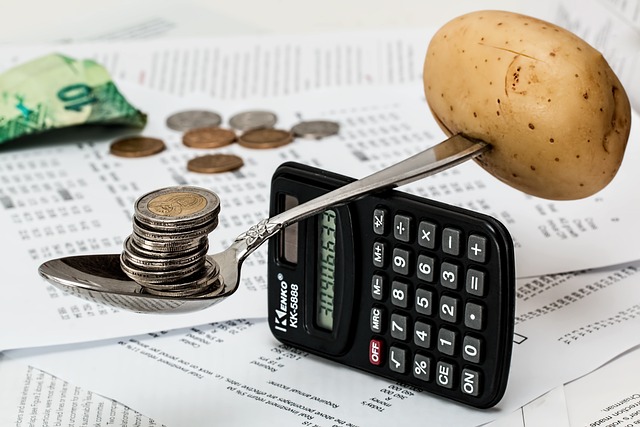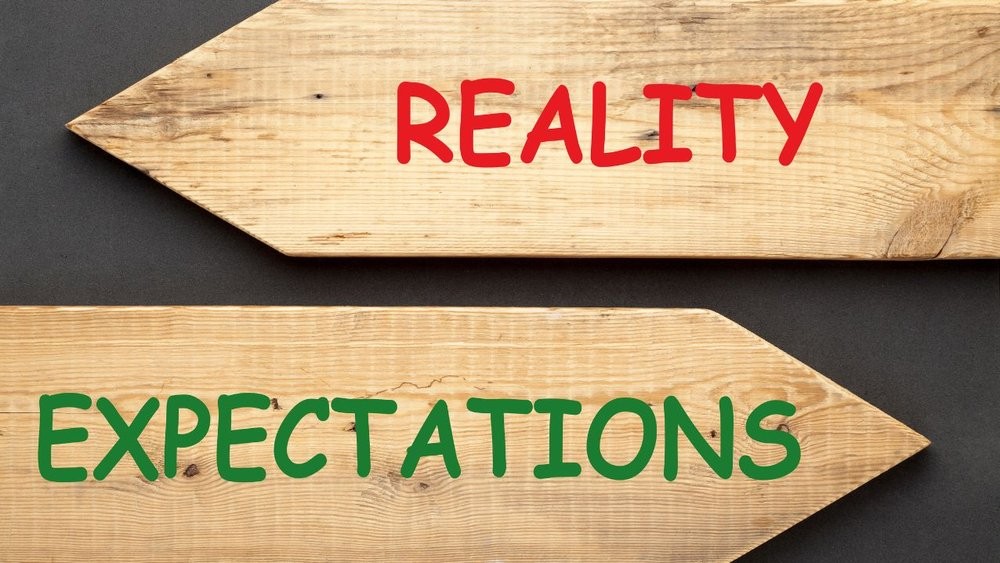
Where the holiday season is often portrayed as a time of joy, celebration, and togetherness, for many people, this time of year can also bring about feelings of stress, anxiety, and even depression. You may feel the pressure to meet societal expectations, financial strain, getting the perfect gifts for your loved ones, or even the loss of loved ones can contribute to the negative emotions named ‘Holiday Stress and Depression’.
In this article, we’ll explore how to cope with holiday stress and depression. We’ll also discuss the factors contributing to this mental exhaustion and the different signs and symptoms of holiday stress and depression. Let’s first discuss what holiday stress and depression are.
What is Holiday Stress and Depression?
Holiday stress is a common feeling when we’re under pressure or overwhelmed – that occurs during the holiday season. Depression, on the other hand, is characterized by persistent feelings of sadness, hopelessness, and a loss of interest in activities that were once enjoyable for you in holidays. The holiday season can be a double-edged sword for you. On one hand, it is a time of celebrating festivals, filled with parties, family gatherings, and giving gifts. But, on the other hand, it can also be a time of great stress and sadness.
Also Read:
13 Tips of How To Find Your Passion When You Are Depressed?
Factors that Contribute to Holiday Stress and Depression
It is essential to understand the factors that contribute to holiday stress and depression, as it is the first step in managing these emotions. These factors may include:
- Financial strain
- Loneliness
- Excessive drinking
- Family dynamics
- Fatigued
- Increased pressure
- Seasonal depression
- Missing loved ones
- Social pressure
- Social or unrealistic expectations
These are the significant factors that contribute to igniting holiday stress and depression.
Signs and Symptoms of Holiday Stress and Depression
Holiday stress and depression are visible in multiple signs and symptoms. These can be emotional, physical, behavioral, and cognitive signs. These include:
Emotional Signs
- Feelings of sadness or hopelessness (even in a festive environment).
- Anxiety and restlessness, often about specific holiday events or more generalized worries.
- Irritability and mood swings (with emotions fluctuating rapidly and sometimes without clear cause.
- Feeling overwhelmed by the demands of holiday planning, shopping, and socializing.
- Lack of interest in the holiday season (activities and traditions previously enjoyed)
- Feelings of loneliness or isolation, especially when not to be with loved ones.
Physical Signs
- Changes in sleep patterns, such as insomnia or sleeping too much.
- Altered appetite, either a loss of appetite or overeating.
- Stress-induced symptoms, such as headaches, stomachaches, or exacerbated chronic health conditions.
- Fatigue, feeling constantly tired due to emotional and physical stress.
Behavioral Signs
- Withdraw from social interactions, preferring to be alone.
- Neglecting responsibilities at work or home due to lack of energy or motivation. Increased use of alcohol or drugs (considering a coping mechanism for holiday stress or depression)
- Changes in behavior that are noticeable to others, such as being more quiet or agitated than usual.
Cognitive Signs
- Difficulty concentrating (making it hard to focus on tasks).
- Indecisiveness, struggling to make decisions about holiday plans or even daily tasks. Negative self-talk and pessimism are often about oneself or the current situation.
- Ruminating on the negatives, such as past holiday disappointments or current challenges.
How to Cope with Holiday Stress and Depression?
While the holiday season can be challenging, numerous strategies can help in coping with holiday stress and depression. By implementing these expert tips, you can make a significant difference in your mental well-being. Here are the coping strategies:
Self-care Strategies for Managing Holiday Stress
Self-care is the first and foremost in managing holiday stress and depression. Taking care of yourself physically, emotionally, and mentally can help build resilience and reduce the negative impact of stress. Here are some self-care strategies you can follow:

- Healthy Eating – Consume healthy meals that provide you with enough nutrients. Healthy eating helps in releasing mental as well as physical fatigue.
- Prioritize Your Sleep – Getting enough sleep is crucial for maintaining good mental health. Get 7-9 hours of quality sleep each night to recharge your body and mind.
- Engage in Regular Exercise – Exercise has been shown to boost your mood and reduce stress. Engage yourself in regular exercises. Find activities you enjoy and make them a part of your daily routine.
Budget Wisely
Financial stress can be a significant contributor to holiday anxiety. Budgeting wisely means planning your expenses and sticking to your budget. Consider homemade gifts or experiences instead of expensive purchases. If you still can’t get through holiday stress and depression, then try these alternatives:

- Donate to a charity in someone’s name.
- Give homemade gifts
- Start a family gift exchange.
Remember, the price tag does not measure the holiday spirit.
Creating a Support Network During the Holiday Season
Building a support network of friends and family can be another essential component of coping with holiday stress and depression. Surround yourself with understanding and empathetic individuals. It can provide you with a much-needed source of comfort and encouragement. Here are some ways to create a support network for you:
- Reach out to Your Loved Ones – If you’re undergoing holiday stress and depression, try to reach out to your loved ones on these holidays. Make meet-up plans with them. Share your feelings and concerns with your trusted family members or friends. They’ll indeed offer support and perspective during difficult times.

- Join Support Groups – Look for local support groups or online communities where you can connect with others experiencing similar challenges. Sharing your experiences and listening to others can provide a sense of belonging and understanding.
Mindfulness and Relaxation Techniques
These techniques can be effective and powerful tools in reducing holiday stress. Mindfulness and relaxation techniques can help you stay present and manage overwhelming thoughts and emotions. It enables you to find moments of calm amidst the chaos. You can consider the following mindfulness and relaxation techniques for you:
- Mindful Breathing – Mindful breathing helps provide you with mental calm. Take a few moments each day to focus on your breath. Inhale deeply, hold for a few seconds and exhale slowly. This simple breathing practice can help you feel more grounded and centered.

- Engage Your Senses – Engage your senses to get more productive responses for mental health. Pay attention to the sights, sounds, smells, tastes, and textures around you. It can help bring you into the present moment and create a sense of calm.
- Practice Relaxation Techniques – Despite having holiday stress and depression, relaxing can be a helpful strategy. Incorporating relaxation techniques such as deep breathing, meditation, or yoga into your daily life can be helpful. These practices can help calm your mind and reduce stress levels.
Seeking Professional Help for Holiday Stress and Depression
If holiday stress and depression have become overwhelming despite following the above techniques, seeking professional help can be valuable. Mental health professionals can provide guidance, support, and treatment options to help you navigate difficult times. Don’t hesitate to ask for help if needed, as they can provide strategies and support tailored to your needs.

Setting Realistic Expectations
It is essential to set realistic expectations to manage holiday stress and depression. Remember, perfection is unattainable! So, it’s okay to prioritize self-care and well-being over social expectations. Here are some tips to follow for setting realistic expectations:
- Set Boundaries – Set boundaries for yourself to be happy. Learn to say no to activities or commitments that feel overwhelming. Always focus on what is most important to your physical and mental well-being.

- Simplify Traditions – Holidays usually tend to be more busy or planned by people. All these activities proved to be more stressful for you. Consider scaling back on elaborate holiday traditions that may add unnecessary stress. Focus on the aspects of the holidays that bring you joy and meaning.
Concluding Thoughts
The holiday season can be a challenging time for many people. However, by understanding the causes of holiday stress and depression and implementing expert tips for coping, you can find joy in chaos. Prioritize self-care, create a support network, practice mindfulness and relaxation techniques, and seek professional help when and where required. As you implement these coping strategies, consider exploring products and services to support mental health and well-being. From mindfulness apps to therapeutic resources, there’s a wealth of tools available to help you cope with holiday stress and depression.
FAQ Section: How to Cope with Holiday Stress and Depression: A Step-by-Step Guide
Q.1.Why do some people experience stress and depression during the holidays?
The holiday season can be a time of high expectations, financial pressures, and increased family dynamics, which can lead to feelings of stress and depression. Additionally, the season can evoke feelings of loneliness, grief for lost loved ones, and reflections on personal goals and achievements, which may contribute to these emotions.
Q.2.What are some signs of holiday stress and depression?
Signs include persistent sadness or anxiety, feelings of hopelessness, irritability, fatigue, changes in sleeping or eating patterns, difficulty concentrating, and loss of interest in activities previously enjoyed. Physical symptoms may also manifest, such as headaches or stomach problems.
Q.3.How can I manage expectations during the holidays?
Set realistic goals for yourself and communicate them to others. It’s okay to say no to events or traditions that feel overwhelming. Prioritize activities that bring you joy and fulfillment, and remember that it’s not about creating a perfect holiday but rather enjoying meaningful moments.
Q.4.What strategies can help alleviate financial stress during the holiday season?
Create a budget and stick to it. Consider handmade gifts, which can be more personal and cost-effective. Plan ahead to avoid last-minute shopping, which can lead to overspending. Remember, the value of a gift is not determined by its price tag but by the thought and care put into it.
Q.5.How can I deal with feelings of loneliness during the holidays?
Reach out to friends or family members, even if it’s virtually. Participate in community events or volunteer opportunities, which can provide a sense of belonging and purpose. If you’re unable to be with loved ones, consider creating new traditions that celebrate your current situation.
Q.6.What should I do if I’m grieving during the holidays?
Allow yourself to feel and express your grief. It’s okay to set aside traditions that feel too painful this year. Honor your loved one by incorporating their memory into your holiday, such as lighting a candle or sharing favorite stories about them. Seek support from friends, family, or a support group.
Q.7.How can I handle conflicts with family members during the holidays?
Set boundaries and communicate them clearly. Avoid hot-button topics if they are likely to cause arguments. Focus on shared experiences and positive memories. If a conflict arises, try to respond calmly and assertively rather than reacting emotionally.
Q.8.How can I maintain healthy habits during the holiday season?
Try to stick to your regular routine as much as possible, including sleep, exercise, and eating habits. Allow yourself to enjoy holiday treats in moderation but balance them with healthy choices. Incorporate physical activity into your holiday traditions, such as a family walk or a dance party.
Q.9.What should I do if holiday stress and depression become overwhelming?
Don’t hesitate to seek professional help if you feel unable to cope. Therapists can provide strategies and support for managing stress and depression. Remember, asking for help is a sign of strength, not weakness.
Q.10.How can I help someone else who is experiencing holiday stress or depression?
Listen to them without judgment and offer your support. Encourage them to talk about their feelings and validate their experiences. Offer to help with holiday preparations or to participate in activities together. If they seem to be struggling significantly, gently suggest seeking professional help.


Pingback: How To Find Your Passion When You Are Depressed? 13 Tips For You! - ForbesPoint
Pingback: 7 Effective Strategies For A Digital Detox: A Comprehensive Guide - ForbesPoint